Bill Bixby: The TV Icon's Biographer and Colleagues Share the Secret Side of 'The Incredible Hulk' Star (EXCLUSIVE)
If you grew up watching classic TV in the '60s and '70s, then the name Bill Bixby likely strikes a cord with you. There was an everyman quality that Bill Bixby brought to any character he portrayed; an element that said he was either someone you knew or wanted to get to know better.
In the '60s, Bixby played newspaper reporter Tim O'Hara opposite Ray Walston's "Uncle Martin" on My Favorite Martian (1963 to 1966) and Tom Corbett, a widower raising his son, Eddie (Brandon Cruz), on The Courtship of Eddie's Father (1969 to 1972). In the '70s, Bixby's TV star streak continued, as he played Tony Blake, who uses a particular skill set to help solve crimes, in The Magician (1973 to 1974) and Dr. David Banner, the scientist who would turned into the big green guy (Lou Ferrigno) when angry in The Incredible Hulk (1977 to 1982). Finally, in the '80s, he played TV news anchor Matt Cassidy, who shared the desk with Mariette Hartley's Jennifer Barnes on Goodnight, Beantown (1983 to 1984). And Bixby wasn't just an actor — he also directed many TV episodes, both of the shows he starred in and of beloved later series like Blossom.
Born Wilfred Bailey Everett "Bill" Bixby III on January 22, 1934 in San Francisco, he developed an interest in dancing and then worked on his oratory and dramatic skills in high school, which would lead him to study drama at San Francisco's City College. When he turned 18, he was drafted into the Korean War, but joined the US Marine Corp instead of the Army. He returned to civilian life in 1956 and began organizing shows at a resort in Jackson Hole, Wyoming. Modeling and commercial work followed.
Bixby made the move towards acting in 1961, appearing on stage in the musical The Boy Friend, and then going to Hollywood to make his TV debut on The Many Loves of Dobie Gillis, followed by appearances on The Andy Griffith Show, The Twilight Zone, Ben Casey, Dr. Kildare and Straightaway, among others. Things started to change when, in 1963, he found himself cast as one of the leads in the sitcom My Favorite Martian, and his profile grew from there.
A TV star with a rocky personal life
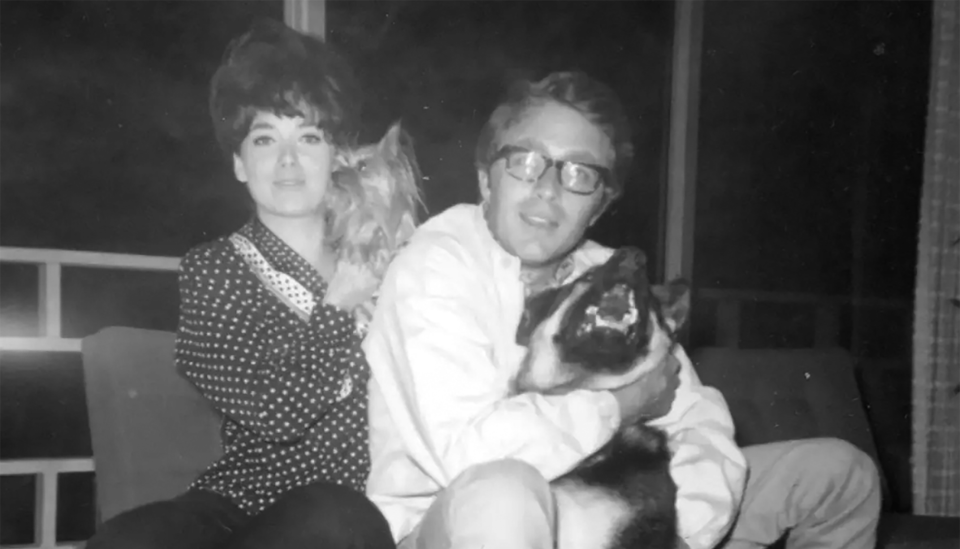
Courtesy David Grove and John Schubert
Bixby would become a pervasive presence on TV from the '60s to the '80s, but he also suffered personal tragedies. During his time on The Incredible Hulk, he was married to actress Brenda Benet, and they had a son, Christopher, who was born in 1974. The marriage fell apart in 1981 and a year later Christopher died from a combination of cardiac arrest and acute epiglotitis, which was triggered by doctors inserting a breathing tube in him. Then, the year after that, Brenda Benet committed suicide, but no one would know all of this was going on based on the actor's outward appearance.
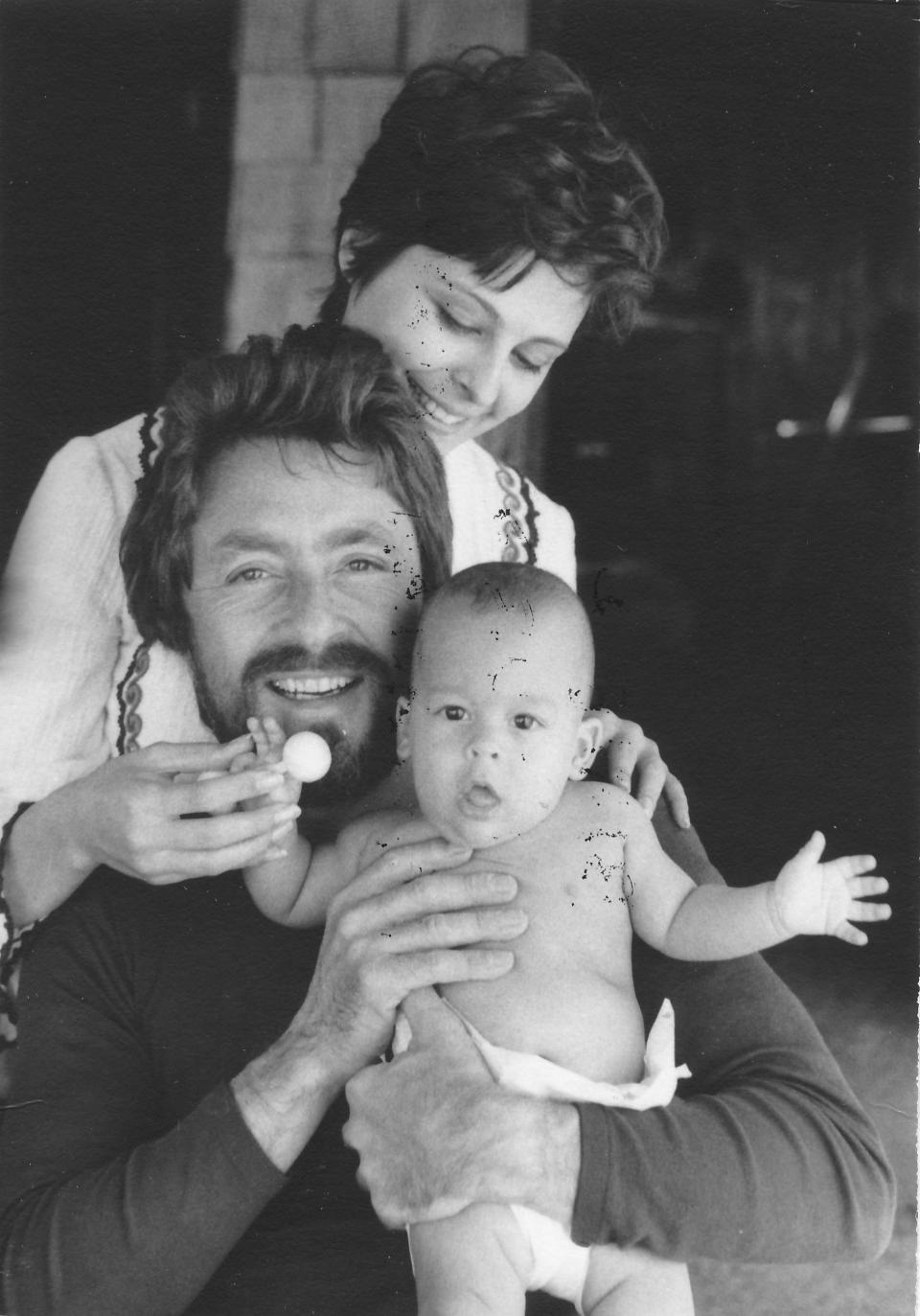
Courtesy David Grove and John Schubert
Hulk TV series creator/producer Kenneth Johnson notes, "I was with Bix through most of his most difficult and traumatic experiences, including his very bitter divorce and the sudden, startling death of his son. From the time we first met until the very end, we were great friends and I had gone through a tremendous amount of emotional moments with him. But in spite of whatever was going on in his personal life, he was always a consummate professional. Always ready and prepared, always eager to do his very best job in front of the camera. The crew and cast members knew what he was going through and we gave him the space that he needed.”
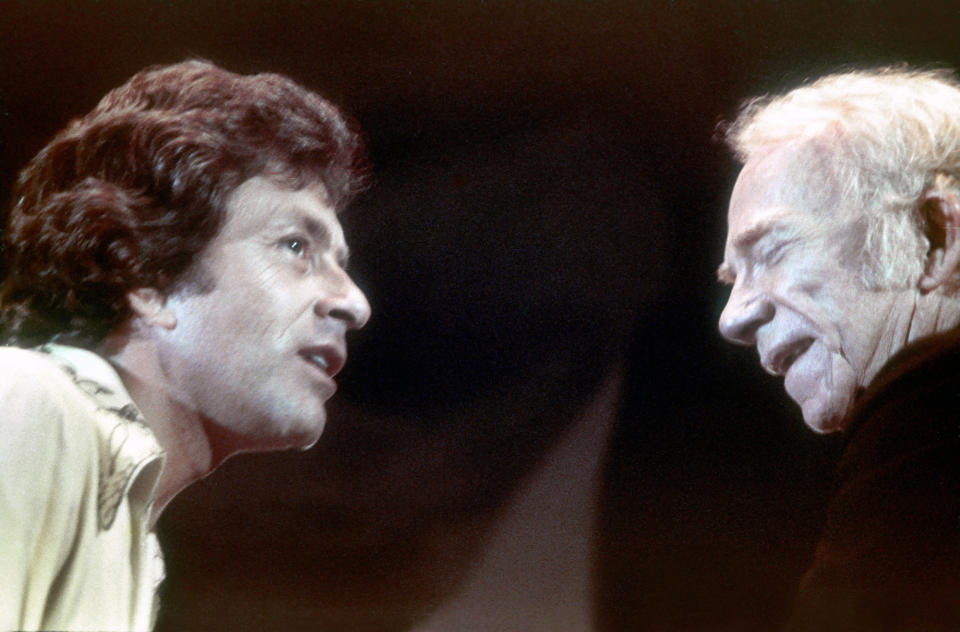
Donaldson Collection/Michael Ochs Archives/Getty
For his part, Cruz, who played Bixby's son in The Courtship of Eddie's Father, remembers his late TV dad as being a "very private guy. He didn't let a lot out. I remember his dad passed away while we were filming, and he walked right on the set. Everybody was really quiet and he looked around and said, ‘Hey, we have a job to do. Let’s do it. If you want to talk to me afterward once we wrap, then we can talk. But right now, let’s work.’ And that’s the way Bill was. Private stuff was for private times.”
Thoughts from Bill Bixby's biographer
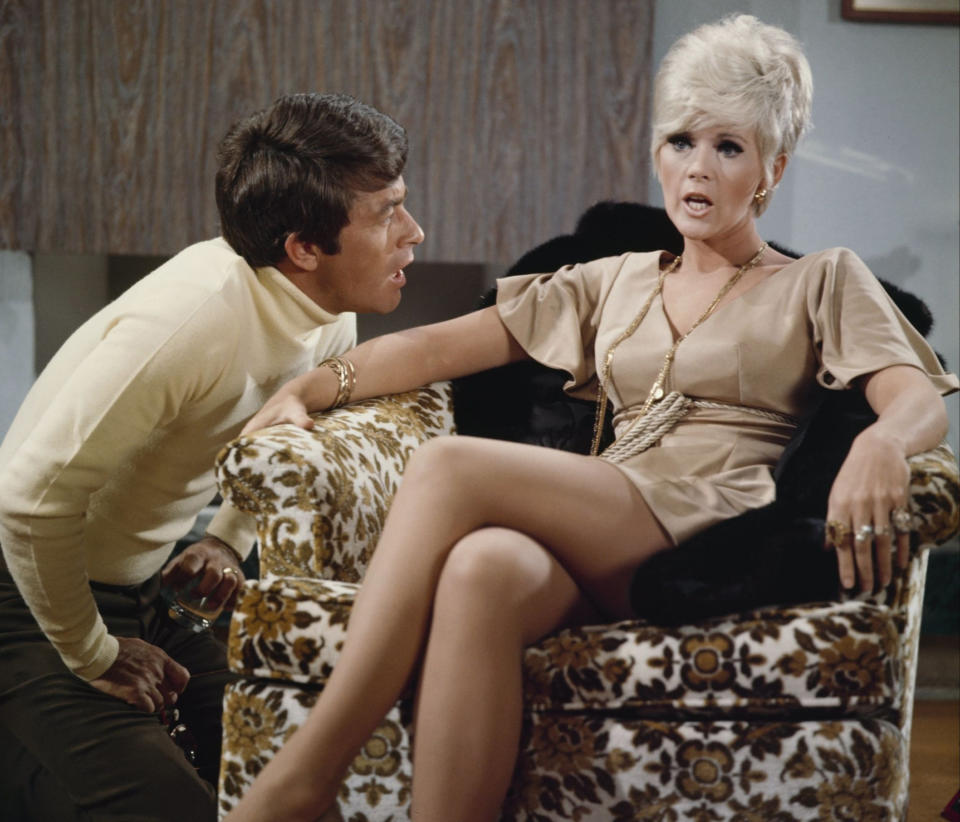
?Paramount Pictures/courtesy MovieStillsDB.com
"Bill had an enormous capacity with which to compartmentalize painful events in his personal life, and his main tool, of course, for blocking out grief and pain was work," points out author David Grove, who has been at work on the biography Bill Bixby: The Incredible Everyman. "I think that this goes back to his childhood, when his father left him to join the World War II effort, and then during his university years, when the love of Bill’s life left him for another man. However, this pattern of compartmentalization on Bill’s part wasn’t solely reserved for tragedy. In general, Bill was very conscious about burying the past, so to speak. He was fearful of the past, which he seemed to view as being a hurtful thing."
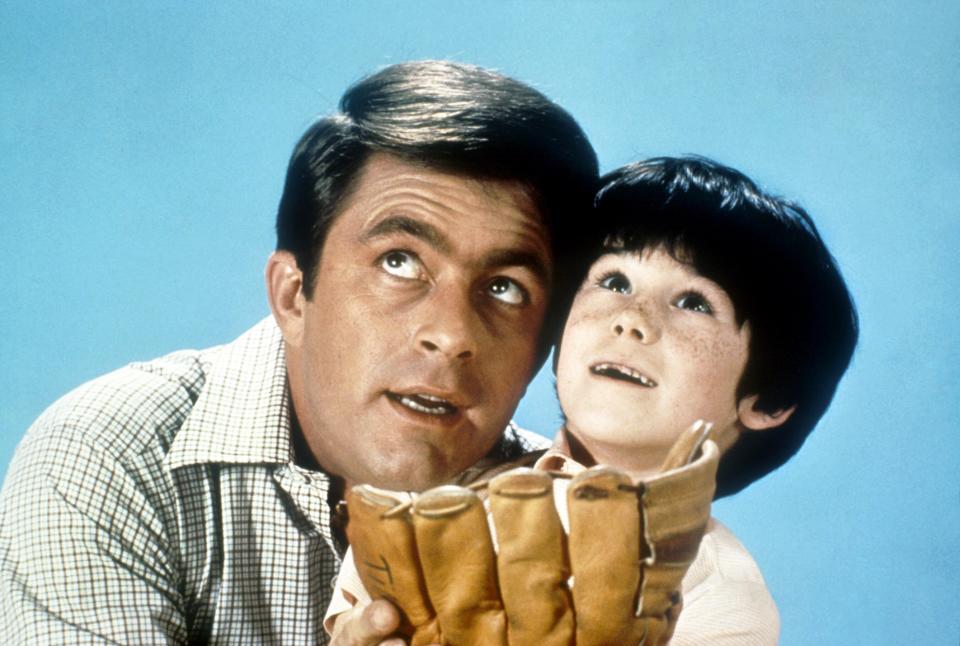
?MGM/courtesy MovieStillsDB.com
When beginning this project, which has been several years in the making and promises an unprecedented look at the life and career of Bill Bixby, it's obvious that Grove had one idea in mind of who the actor was, an idea that must have been shaken up by the time he'd done his research and interviews and begun writing the biography.
"I've always believed that Bill Bixby was defined by an essential contradiction, which is that Bill was someone who had an intense need for attention and recognition — a need for the spotlight — while also being very protective and secretive in his personal life," says Grove. "This was my definition of him, as an actor and a person, when I first conceived of the idea of writing this book, approximately seven years ago, and this perception of Bill has endured for me throughout the arduous process of both documenting Bill's career and life, and writing this book."
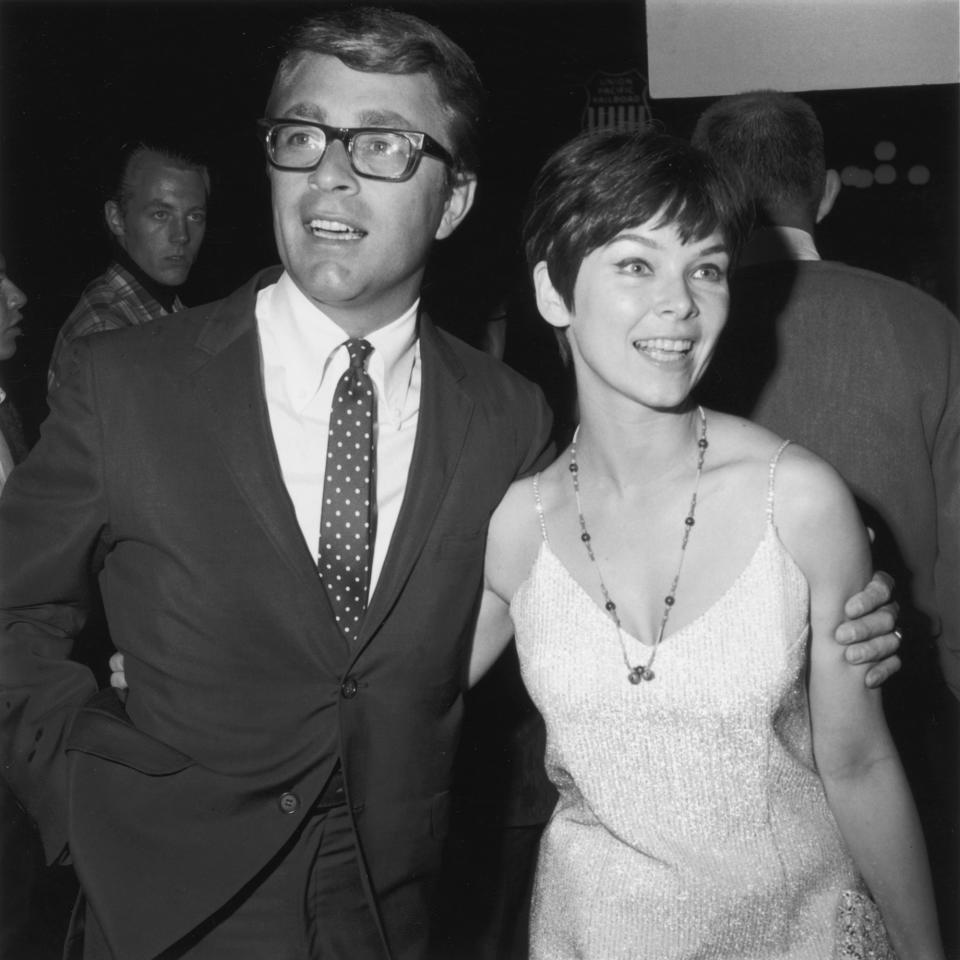
Max B. Miller/Fotos International/Getty
At the same time, he points out, for an author and journalist it's problematic, if not dangerous, to begin any investigation of a subject with a set idea in mind. As he says, "there's a natural tendency to filter all discovered evidence and facts to fit said thesis, and no one's life fits any thesis perfectly. However, the vast amount of research and testimony that I've collected has only confirmed and supported this premise for me."
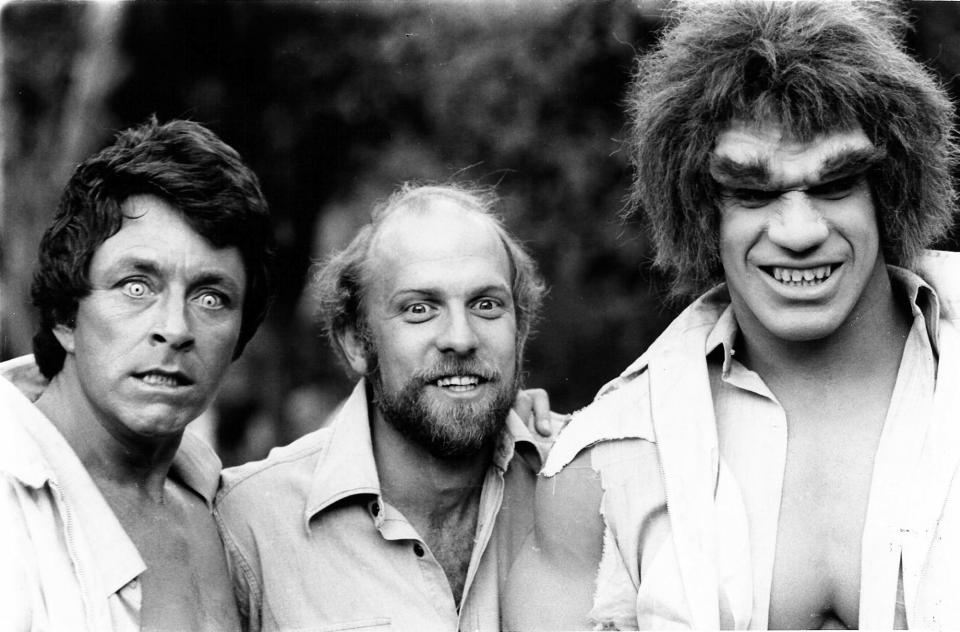
?NBCUniversal/courtesy MovieStillsDB.com
"My inspiration for wanting to write about Bill was based on what I have in common with Bill, namely the fact that Bill was an only child, as I am," Grove continues. Just as I fully recognize and see now, much too late, how being an only child shaped my basic personality and my life choices. I also see this with Bill, specifically in terms of his approach to relationships. Like Bill, when my father dies, I will be in the solemn position of being the last of my line, presiding over the end of my family."
Bill Bixby's private persona
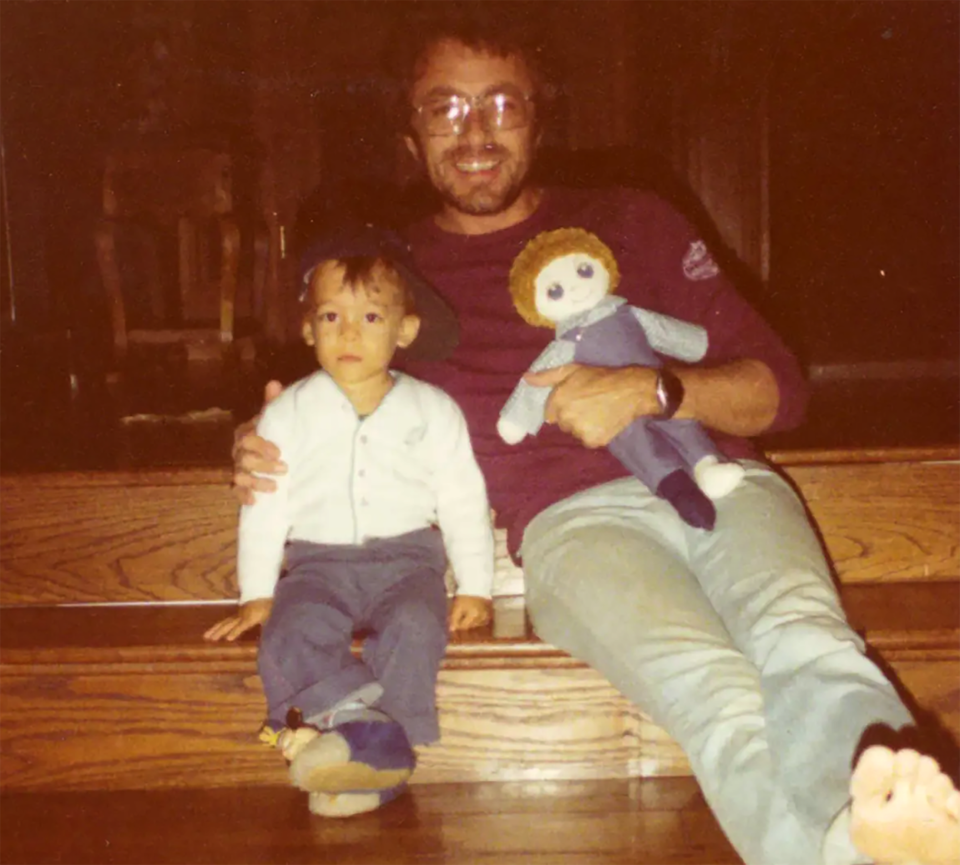
Courtesy David Grove and John Schubert
On screen, there was a relatable quality to Bill Bixby. Yet one of the main aspects Grove will be focusing on in his biography is the fact that the likable star was so secretive about so much.
Emphasizes Grove, "All of the conclusions that appear in my book are based on facts and testimony. So many of the people whom I’ve interviewed about Bill, people who thought they knew him, now fully embrace the reality that they never really knew did. The fact is, very few people were allowed into his inner domain, and those few people who were granted access to Bill’s personal life, each saw different corners of his life. As very few people, if anyone, saw the entire picture. I hope that my book encompasses all of the aspects of not only Bill’s career and life, but also his enigmatic personality."
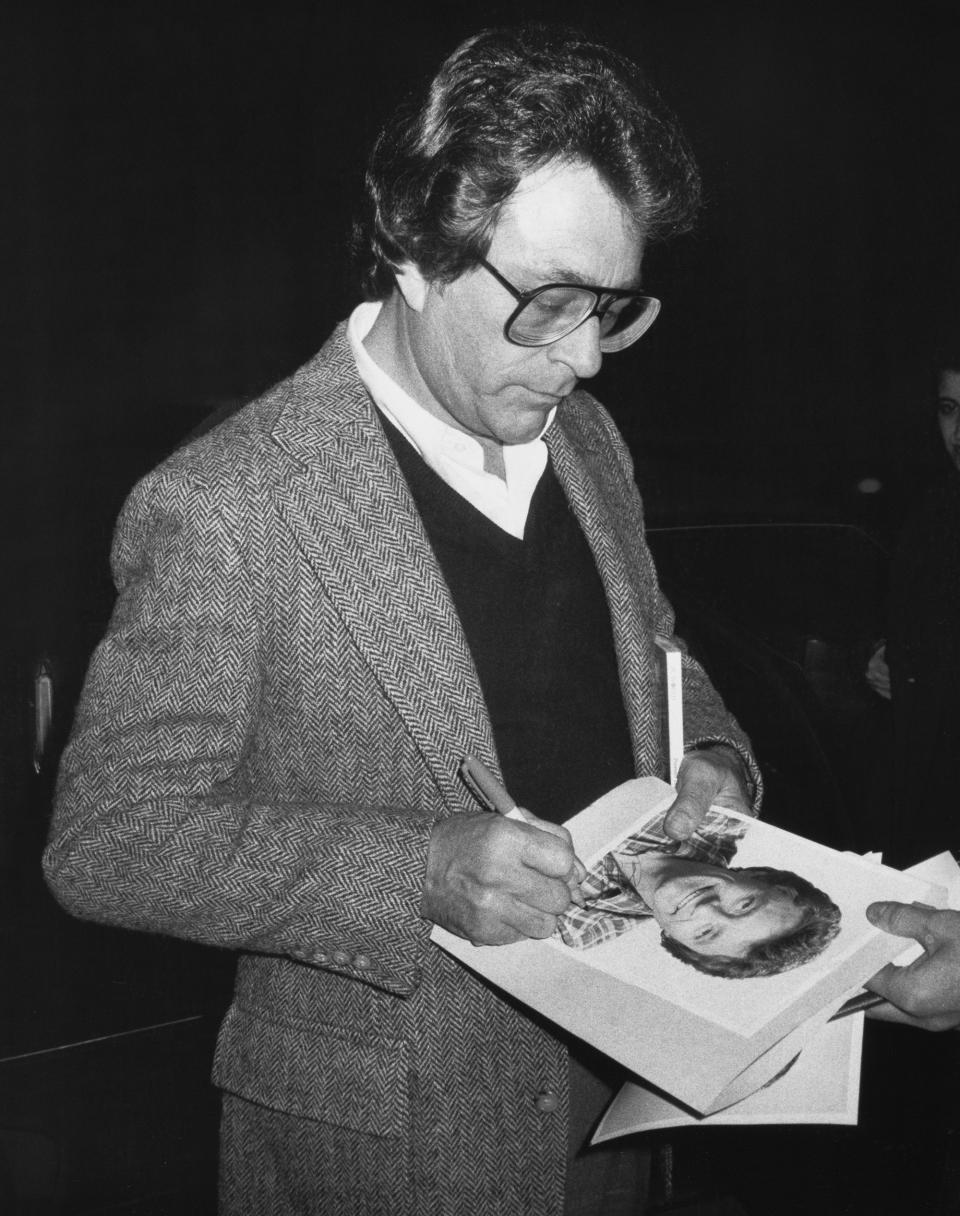
Vinnie Zuffante/Getty
One point he makes — which reinforces the contradiction of Bill Bixby — is that he was outwardly very gregarious, while he could be introverted in terms of personal relationships and allowing access. "But he was not introverted at all on the set or in his social life," Grove emphasizes. "There he was the opposite. He was also someone who had so much energy and intensity that it was sometimes overwhelming. One of Bill's closest friends told me she thinks it would be impossible for any woman to have been married to Bill for a long period of time, maybe 20 years or 30 years, because he was just so demanding in terms of energy, in terms of intensity."
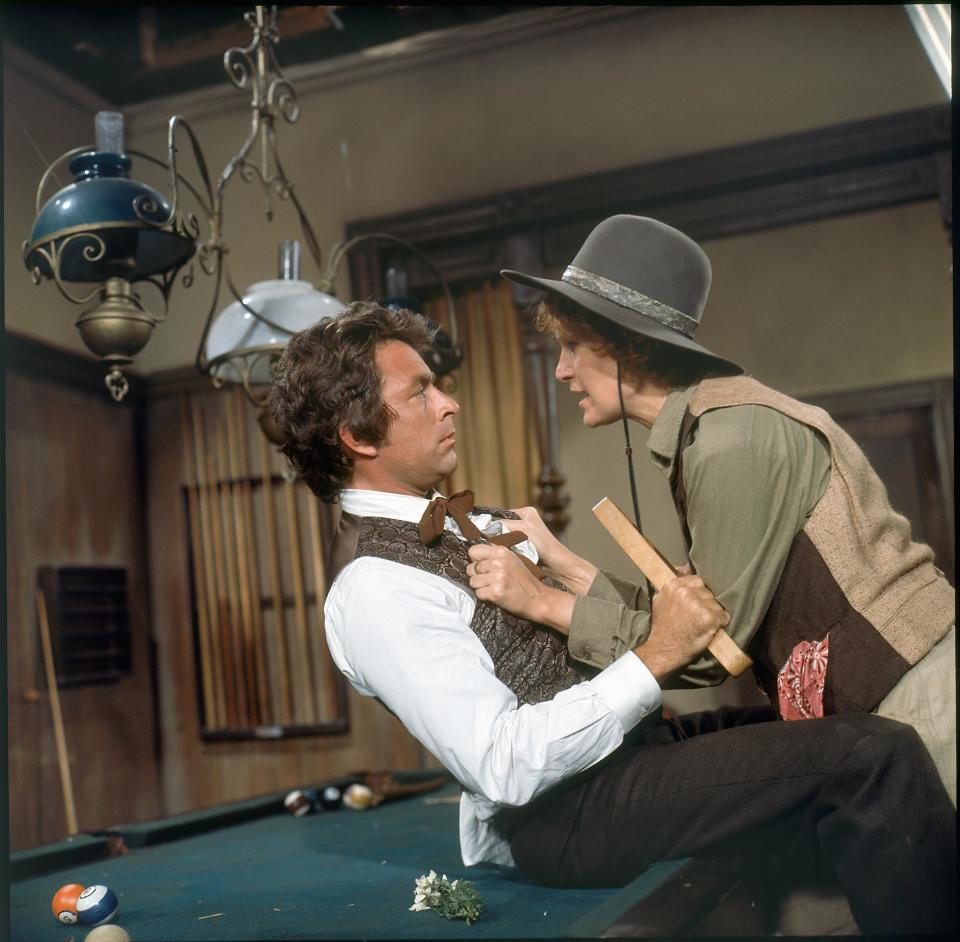
?Disney/courtesy MovieStillsDB.com
"One time he went on a date with this woman, one of his friends told me, who was one of these women’s lib people who was very opinionated, very smart," says Grove. "She said she lasted one date with Bill, because he talked all the time and he had many opinions on everything. Sometimes during one thought, he would go from one subject to the other and it was very difficult to maintain that level of energy if you were in conversation with him."
Grove adds, "Bill very much carried himself as an intellectual and he was very intelligent, but he was self-educated. He dropped out of university and he studied many subjects, developing opinions on all of them. If you were having a conversation with Bill and he sensed that you were unable to maintain your part of the conversation, to exist on his intellectual plane, he would just drift away. He wouldn’t be rude, he’d be very polite and smile, but you could tell he wouldn’t be there anymore."
The real question, of course, is whether or not this secretiveness had a negative impact on him, either personally or professionally. Grove says that as an actor, Bill Bixby was either unable or unwilling to allow viewers to have access to his aspirations, fears or innermost thoughts.
"There was always an invisible shield, an imaginary glass layer, between Bill and the camera and the audience," Grove says. This is evident in the glaring contrast between Bill’s film and television personas. In his few feature film appearances, he invariably came across as being two-dimensional, whereas on television there was much more of a sense of personality, and warmth, in Bill’s performances. However, regardless of the format that he performed in, he was rarely able to establish a deep, emotional connection with his audience."
"This wasn’t just a function of his comedic work, because comedy, good comedy, I believe, thrives on immediacy and tension," Grove elaborates. "However, while I do believe that Bill’s own personality contributed to his basic acting persona, to his limitations as an actor, I’ve also come to the conclusion that he, like many performers, simply made the best of the tools that he was given. Quite simply, there were roles that he was suited for, and there were roles that were just beyond him. When I think about Bill and his reach as an actor, I think about Gene Wilder, who commented that while he felt that he could have been successful in dramatic roles, there were countless other actors who would be a better choice for any dramatic role that Wilder was considered for."
A sad end
As noted earlier, Bill Bixby pushed himself professionally in the aftermath of his father and sons' deaths, and it was even true when he himself was dying of cancer in the early '90s — he kept pushing himself on the set of Blossom until he collapsed.
"I found it troubling that Bill would feel that he wanted to work," Grove muses. "Blossom was his last job before he died. I don’t think most of us would hope that our lives would end that way. I think most of us would hope that we were with family or perhaps traveling. Directing Blossom didn’t accomplish anything in terms of his legacy. I think what we see there is a man who’s very lonely."
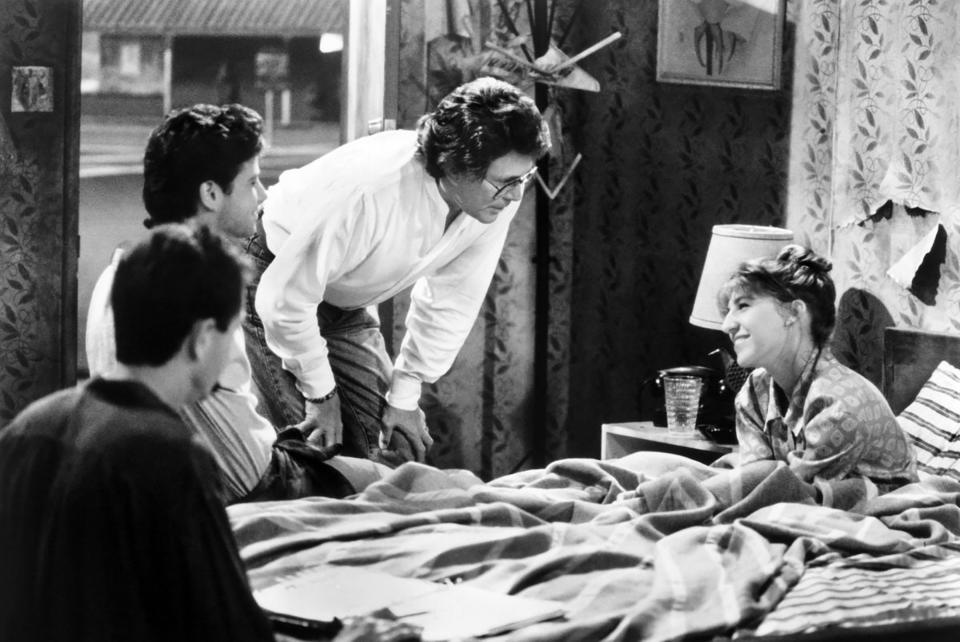
?NBCUniversal/courtesy MovieStillsDB.com
Grove adds, "Bill did show emotion; he cried when Christopher died, and when he divorced Brenda, he was heartbroken. But he never showed so much emotion when he was dealing with cancer and he saw other patients. He actually collapsed on the set of Blossom and he said, 'I was on the set today and fell down. These two girls helped me to my feet and they had tears in their eyes as they did. And it made me cry as well.'”
Bill Bixby died of complications from prostate cancer on November 21, 1993 at the age of 59, but the TV shows and characters he brought to life remain iconic decades after they were first created.
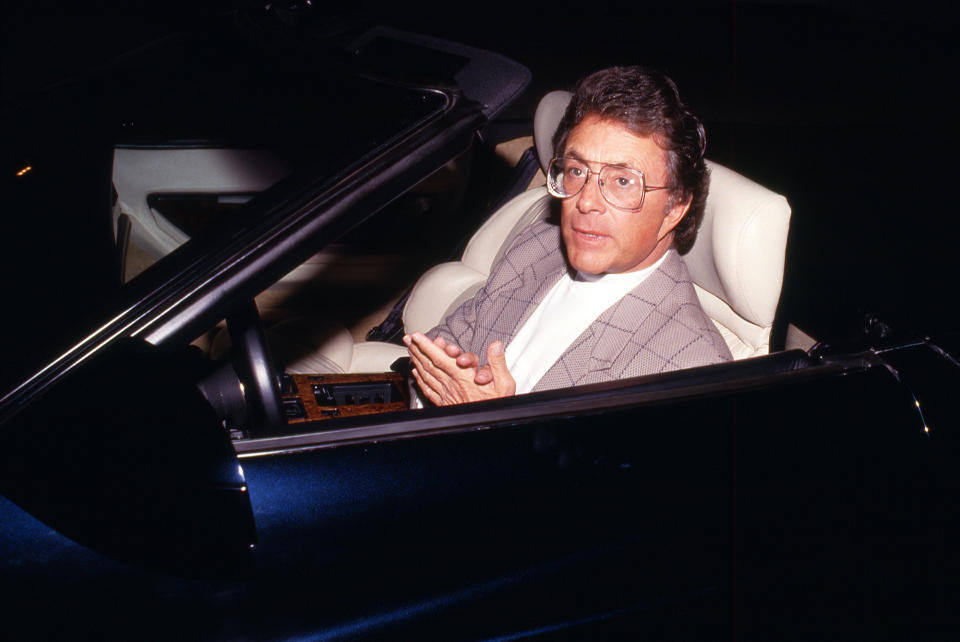
Ralph Dominquez/MediaPunch via Getty
"To the degree that Bill is remembered today I think that owes, in large part, to his starring in The Incredible Hulk television series, as the enduring popularity of the Hulk character, in connection with the Marvel Cinematic Universe has, largely through osmosis and transference, kept Bill's name alive in pop culture, though tenuously so," muses Grove.
He adds, "When I encounter anyone under the age of 40 who knows who Bill is, which is rare, it's because of the Hulk. However, beyond the classic television realm, which is buoyant but aging, where can Bill be seen today? Like many actors who are primarily identified with television, the passage of time should diminish his legacy. However, I'm amazed by how many people still identify with him and are anxiously awaiting this book. Bill's legacy rests in the dark, breathing faintly. But still breathing."
Final reflections from those who knew Bill Bixby
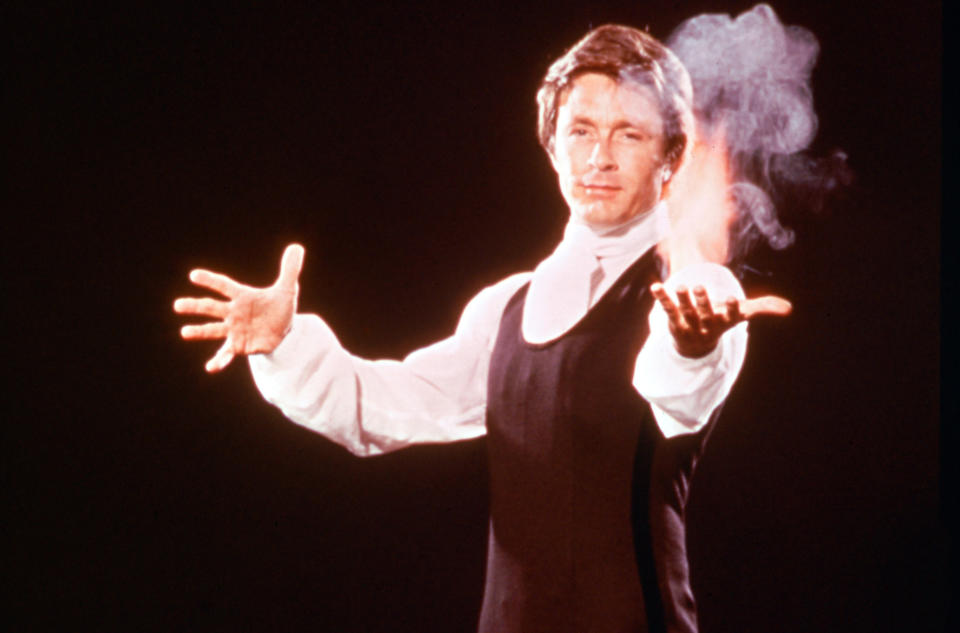
Silver Screen Collection/Getty
KENNETH JOHNSON (creator/producer The Incredible Hulk): "I remembered seeing Bill Bixby in a 1973 TV play called Steambath. He gave a dazzling performance, demonstrating every human emotion that anyone could possibly ever have. He was so wonderful, that I realized he was the guy I should go to for Dr. Banner. He's the only one I sent the script to."
HARRY WINER (director, Goodnight, Beantown): "In the 1980s there was an even greater sense of celebrity for television stars, because there were only three networks then. That means when you were the star of a television show, you are in a hell of a lot of people’s homes. So he was a significant celebrity, and yet incredibly generous. I have to say, I had some good times with him and Mariette Hartley, who also starred in the show. They had a wonderful chemistry and it was a good feeling on the set. And that always starts with the person at the top, the star of the show. Bill was clearly the star of the show."
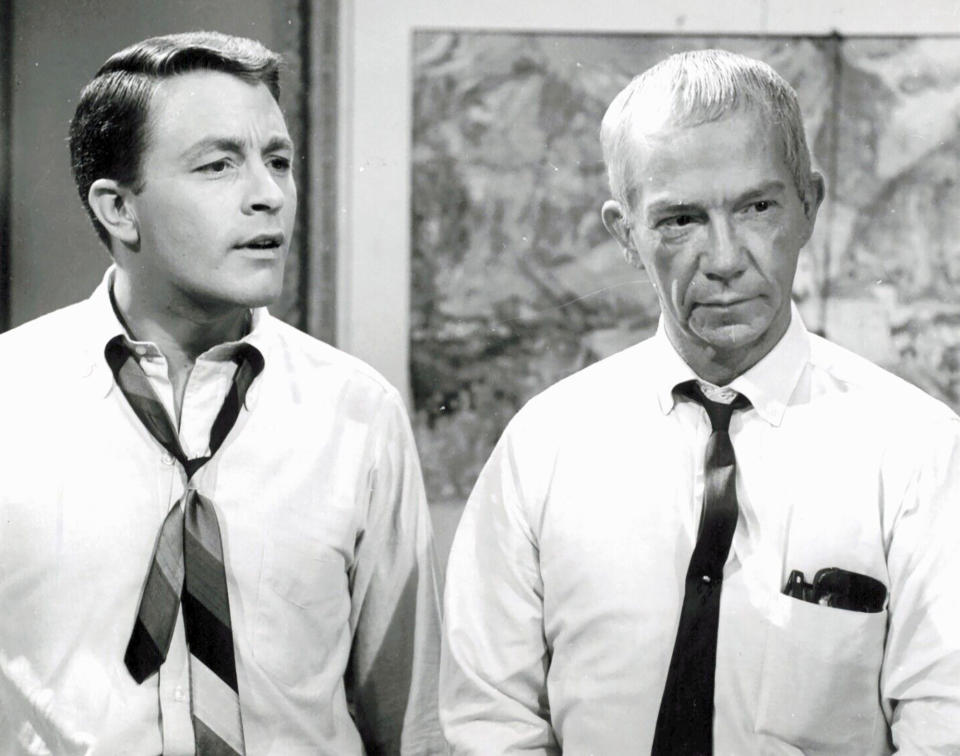
?Jack Chartok Productions/courtesy MovieStillsDB.com
PETER GREENWOOD (official archivist for My Favorite Martian): “When Bill started on My Favorite Martian, he was just a sponge. He wanted to learn everything. He would actually go down to the editorial department and ask them questions as to what they thought would be a better take, or what they thought would be a better way to do things. He spent his time on that show learning everything he could about production, about direction, about writing. Fortunately, one of the the editors was the former editor of the Burns & Allen show and was one of the best editors for comedy. He was the guy that Bill went to and he said, ‘Okay, Bill, you want to learn? Come in here every lunchtime and we’ll talk about it.’ And he did. He took a notepad with him and he took notes."
BRANDON CRUZ (co-star, The Courtship of Eddie's Father): "He really just looked out for everybody. He was a giving, caring professional. Very private, but nobody could ever say a bad word about him. He was the most beloved guy in Hollywood. Then he passed away and that title basically went to John Ritter."
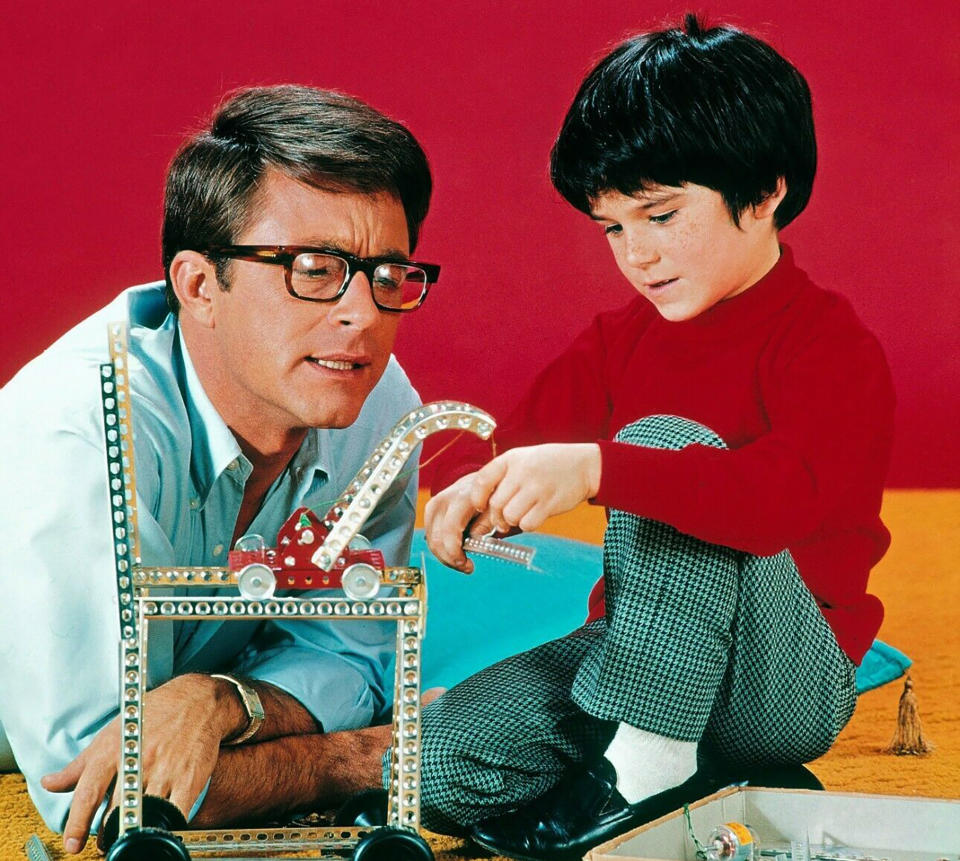
?MGM/courtesy MovieStillsDB.com
KENNETH JOHNSON: “Bill and I were very close. Over the five years, we had a terrific ongoing relationship. We also had many knock down, drag out arguments about stuff, but it was never about bulls–t; never about star stuff. It was always about character or emotional line or structure, or a story point. Always something about making the project better and the best that it could be.”
BRANDON CRUZ: "I think he's sadly overlooked. If you think about the talent that he had and what he brought to audiences — if the ultimate goal of Hollywood and television is to reach a vast audience and sell commercials, in his time no one did it like Bill. He’d go from show to show and they were all high quality. It wasn’t crap. It wasn’t crazy. Bill brought a certain class to it and Bill never did anything that kids couldn’t watch. As crazy as his private life might have been, publicly and professionally he was pretty much a goodie-goodie.”
Read on for more about classic TV stars:
Guy Williams: Here's What Happened to the Zorro and Lost in Space Star
‘Gilligan’s Island’ Star Bob Denver Gave Us Maynard G. Krebs, TV’s First Hipster
Elinor Donahue Dishes on ‘Father Knows Best,’ ‘Andy Griffith’ and ‘The Odd Couple’ (EXCLUSIVE)
